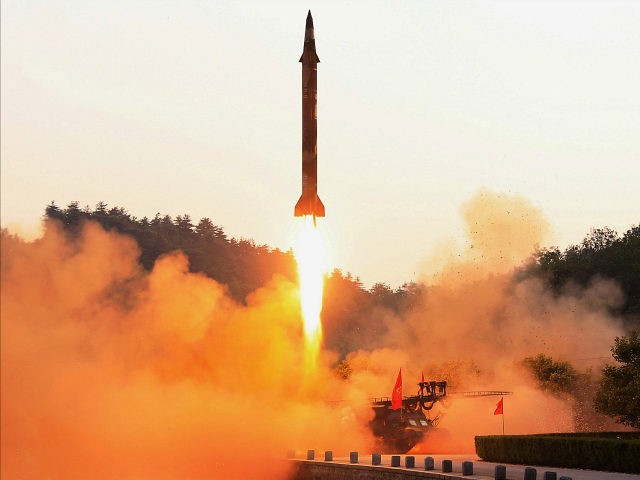Hawaii’s emergency management agency is rolling out a public information campaign to deal with a potential North Korean missile attack.
Hawaii’s Emergency Management Administrator Vern T. Miyagi, in a statement quoted by the Honolulu Star Advertiser explained:
We do not want to cause any undue stress for the public; however, we have a responsibility to plan for all hazards. We don’t know the exact capabilities or intentions of the North Korean government, but there is clear evidence that it is trying to develop ballistic missiles that could conceivably one day reach our state. Therefore, we cannot wait to begin our public information campaign to ensure that Hawaii residents will know what to do if such an event occurs.
State officials noted that a North Korean missile could strike Hawaii within twenty minutes of launching, so there would be little time to get members of the public indoors and begin evacuation procedures if necessary.
Hawaii News Now notes that the Emergency Management Agency currently assesses the North Korean missile threat to Hawaii as “low” but expressed concern about the outlaw Communist regime’s ongoing missile tests.
HNN’s report addresses a question that was left hanging when news of Hawaii’s preparations first broke: yes, the state plan will consider the scenario of a North Korean nuclear strike, specifically a 15-kiloton warhead detonated 1,000 feet above Honolulu.
Preparations will reportedly include a public education campaign, training for schoolchildren, and testing of a new emergency siren on the first work day of each month. When Hawaiian lawmakers first began asking state officials to prepare a North Korea crisis plan in April, they sought state funding to renovate Cold War fallout shelters.
The Star Advertiser cites analysts who fear North Korea might be able to hit Alaska or Hawaii with a small nuclear warhead using its current or near-future technology. Miyagi, who is a retired Army general with experience in the U.S. Pacific Command, described Pyongyang’s latest long-range missile test as an “awakening” and said it was simply prudent to “keep a lookout” against the growing threat.
NBC News points out that at least one county in Southern California has embarked upon an educational program similar to the one Hawaii envisions, likewise stressing that citizens should “get inside, stay inside, and stay tuned” in the event of a missile attack.
Hawaii’s tourism industry is not entirely thrilled by headline news of preparations for a North Korean missile attack. Tactful messages are being sent to state officials that they should not unduly alarm the public with headline-grabbing preparations for extremely remote threats.
While Hawaii Tourism Authority Director of Communications Charlene Chan applauded the Emergency Management Agency for its determination to plan a response to every conceivable threat, she warned that, “if reports are misinterpreted about the state’s need to prepare for an attack, this could lead to travelers and groups staying away from Hawaii.”
“The effect of such a downturn would ultimately be felt by residents who rely on tourism’s success for their livelihood,” she cautioned.

COMMENTS
Please let us know if you're having issues with commenting.